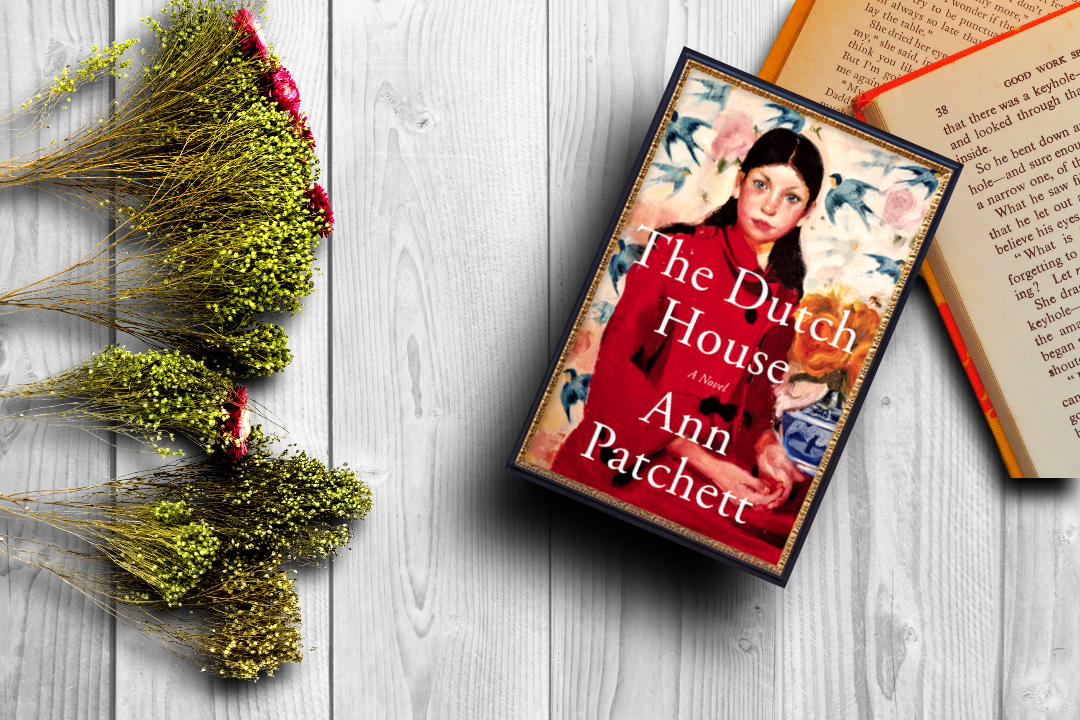The latest novel by Ann Patchett is an intimate character study of a brother and sister, abandoned by their parents and their fate often tested by life.
One day the Conroy siblings find themselves motherless, as Elena Conroy leaves them for a higher calling without ever bothering to say goodbye. This abandonment by their mother, and her picking the needs of strangers over her own kids, leaves a permanent bruise.
And it all started with the house.
“Everyone in Elkins Park knew what happened in the Dutch House.”— Patchett
Danny knew the house was something of a legend in that their part of Pennsylvania. It was both famous for its outrageous, yet beautiful architecture, and also for its Dutch owners, the Vanhoebeeks, the wealthy cigarette makers.
Cyril Conroy, Danny’s father, had bought this 1922 mansion as a gift to his wife, Elena, as he started his journey to become a property mogul. In post-war America, real estate was ripe for plucking, and Conroy was smart enough to make his move. He was less astute on the home front, where his wife was increasingly uncomfortable with their growing wealth, ostentatious house, and live-in help. Her Catholic upbringing, and her desire to put others’ needs before hers, ate away at her very soul. And one day she left the hateful place, and her children along with it all.
This was only the first of the abandonments that defined Danny & Maeve’s childhood. When their father remarried Andrea, who brought her own kids to the marriage, it was an abandonment of the old Conroy family unit. And when Cyril died suddenly from a heart attack, leaving Andrea with all his wealth and the house, his passing was the nail in the coffin. The vagaries of fortune seemed never ending.
It was as if Danny & Maeve were orphaned slowly and painfully over the years, by being born to flawed parents. With such terrible adults in their life, it’s only natural that the siblings find strength in each other, with Maeve leading the charge.

Photo Credit: Unsplash.com
Narrated by Danny, The Dutch House is a tribute to his sister: fiercely independent, brilliant, diabetic Maeve, who gave up on her ambition to make sure that her brother could make the most of it. Of how she stepped into a maternal role after their mother abandoned them, of how she protected Danny when they lost their house and wealth, and how she pushed Danny to be a doctor. And how she and Danny could never really let go of The Dutch House, stalking it from across the street for decades.
“We pretended that what we had lost was the house, not our mother, not our father. We had made a fetish out of our misfortune, fallen in love with it.” — Patchett
The house looms large in Danny’s remembrances, but despite its repeated appearances, it remains unclear what power it held over its inhabitants. It drove their mother to leave them, was the reason Andrea married their father, and was the start of all the misfortunes for the Conroy kids.
Danny and Maeve’s inexplicable urge to go back and sit and stare at the home of their childhood is an unusual obsession. Maybe it was a window to a life they could have had or a childhood they wished they had lived.
Written in beautiful prose, the pages fly through fingers as readers journey with Danny through some significant milestones of his life. The Dutch House is not a novel in which much happens. At least not in sudden, shocking, plot-altering ways. That doesn’t mean that readers won’t get pulled into the small, private world of Danny and Maeve, siblings bound by a house, lost childhood, and love.
For more book reviews, go here


